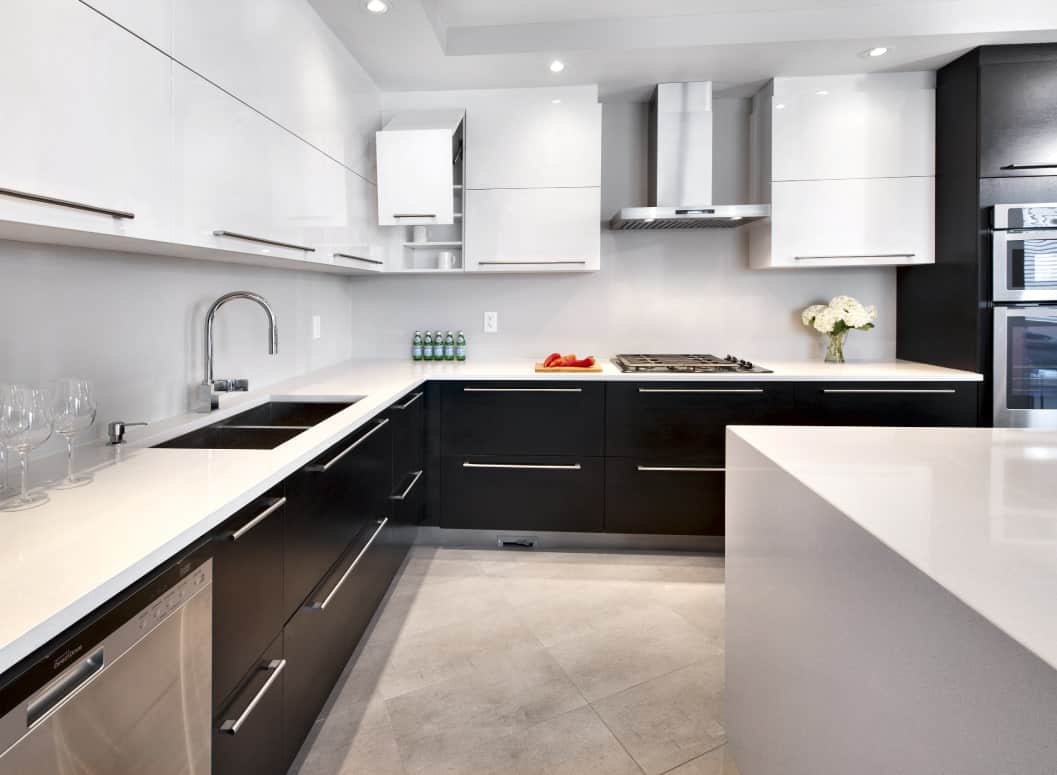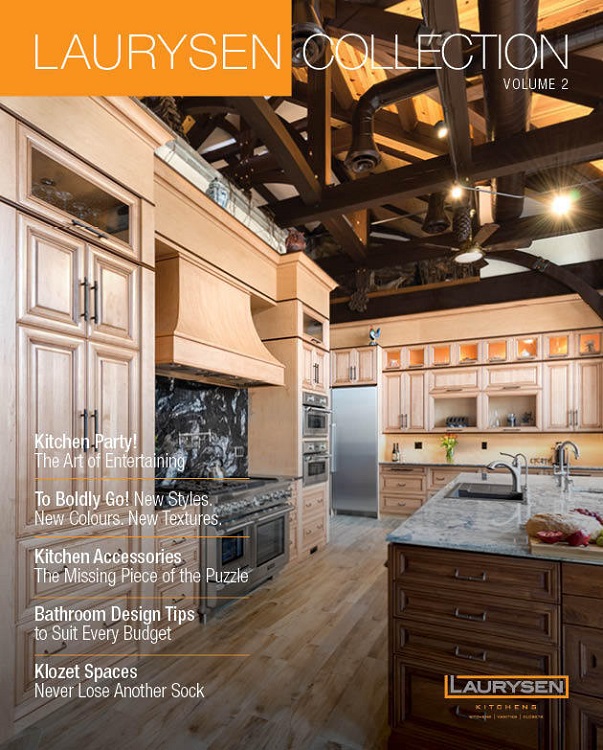If you’d love the look of new stone countertops for your Ottawa kitchen or bath, you’re probably debating quartz vs granite vs marble. With so many choices, you may feel uncertain about how to decide. Well, as with so many decisions in life, knowledge is key.
Each of these countertop materials is attractive and would make a wonderful focal point for your kitchen, but there are other points to consider, as well. How much upkeep do countertops need? And how will they fit into your kitchen renovation budget? Understanding the differences between quartz, granite, and marble will help you choose the right one for your home.
Table of Contents
Quartz
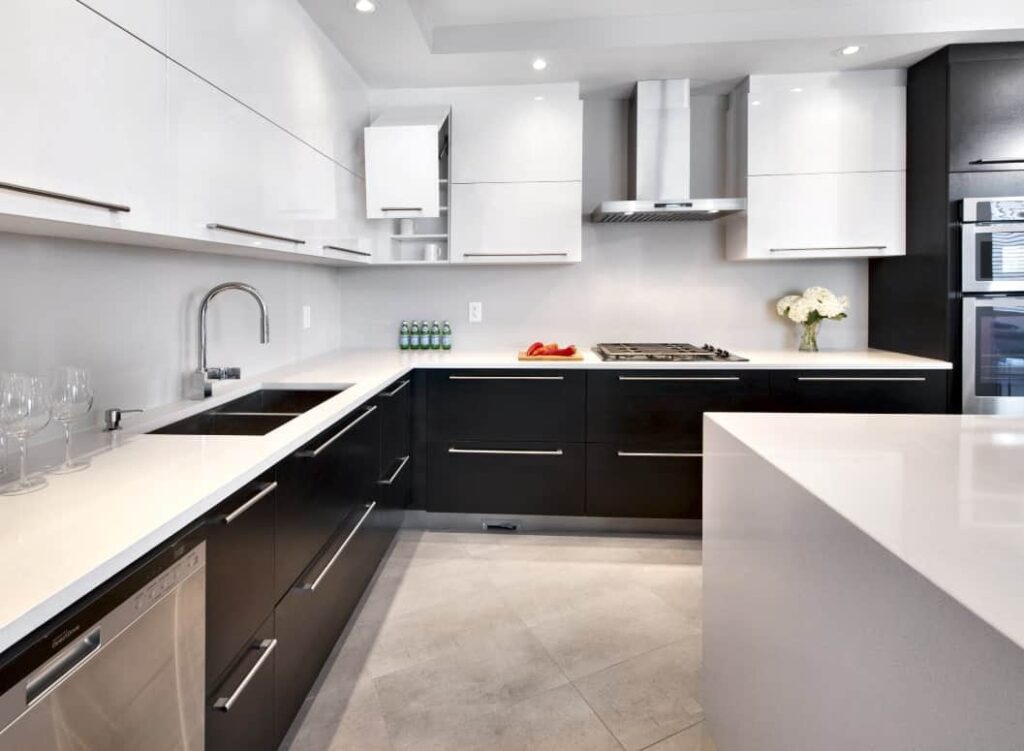
Quartz is very trendy these days and no wonder. This engineered ‘stone’ countertop material is actually a blend of about 90% ground natural quartz by weight, coloured with added pigments and bound with polyresins.
The mixture is moulded and heated to form a tough, stone-like substance. This process makes it non-porous and extremely hygienic.
Quartz countertops will complement any home decorating style. They are available in an amazing range of colours, from basic white or grey to lively cherry or lime. You’ll even find faux granites and marbles! Their patterning is usually even and predictable.
Granite
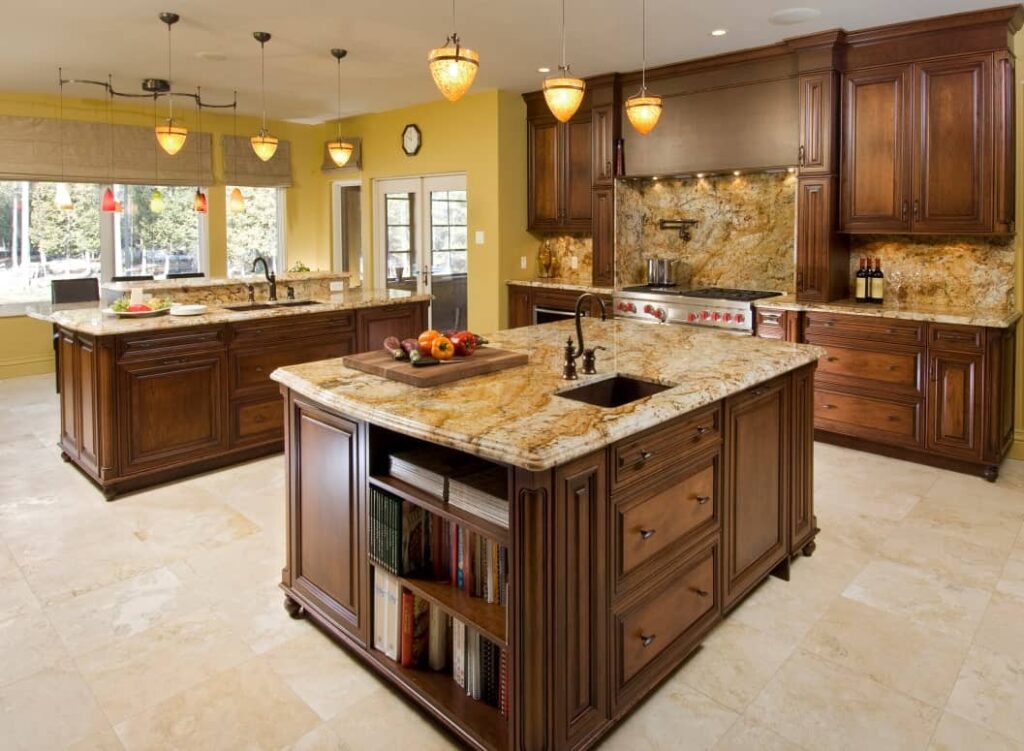
Granite has long been a favourite for elegant countertops (this kitchen upgrade is a strong selling point in upscale real estate descriptions). Durable granite is famously resistant—to heat, staining, scratching, and chemical damage.
Each granite slab is unique, with lovely natural variations in colour and patterning. In addition, it comes with your choice of finishes, either polished or honed (matte).
Because it can last 50 years or more, be sure to select a granite countertop style that you love and can live happily with for a long time.
Marble
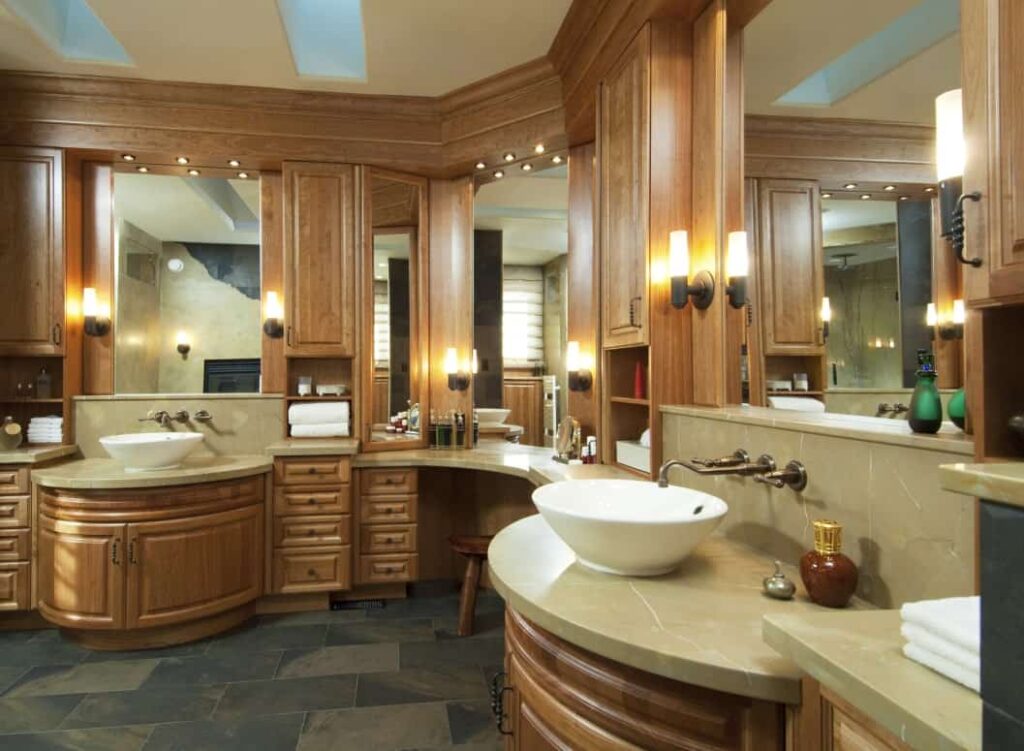
Marble countertops tend to be truly breathtaking and will give your bathroom or kitchen a luxurious feel, especially if you feature a waterfall edge.
Marble, known for its exquisite veining, becomes even more beautiful with time as it develops a subtle patina.
You can be assured that your marble countertops will not look like a cookie-cutter version of your neighbours’ because marble is 100% natural stone; like granite, every slab is different.
Which Is Best? Quartz vs Granite vs Marble
Understanding how these three countertop materials differ will help you choose the material that best fits your style and life.
Variety & Colour
Quartz offers the most variety in colour because it’s engineered. Designers and manufacturers have created a wide range of looks and styles, from sleek modern to earthy textures. If you opt for quartz that mimics the look of granite or marble, you’ll get the same aesthetic with greater durability and lower maintenance.
Granite is a natural stone, and no two slabs are alike. Its pattern and colour will vary, depending on where it was quarried. While granite may have fewer colour options than quartz, it boasts a rich, natural beauty that adds character to any kitchen.
Marble is prized for its luxurious veining and has a timeless, elegant look. Though it comes in various colours, such as black, beige and pink, marble is most commonly found in classic white or grey tones. Two well-known marble varieties include the subtle, elegant Carrara and the more dramatic, bold Calacatta.

Durability
Quartz reigns supreme when it comes to durability. As an engineered stone, it’s non-porous, highly resistant to scratches, and impervious to stains. This makes quartz ideal for families or high-traffic kitchens. However, exposure to high temperatures can cause thermal shock, leading to cracking or discoloration.
Granite is also quite durable, though it is porous and needs sealing to prevent stains and bacteria build-up. Once properly sealed, it is difficult to damage, though It will still chip or crack under too much pressure.
A study by the Natural Stone Institute found that granite countertops have an average lifespan of 30 years, while quartz can last up to 50 years with proper maintenance. Proper care is essential for any countertop material!
Marble, while undeniably beautiful, is softer and more porous than both quartz and granite. It’s easier to scratch and stain and will develop etching from acidic substances like lemon juice or vinegar, making it less suitable for busy kitchens unless you’re willing to commit to cleaning and regular maintenance. Marble is an excellent choice for bathroom countertops.

Environmental Impact
Quartz is generally considered a very sustainable choice, especially when manufactured from waste and recycled stone fragments. Producing a quartz countertop relies on some synthetic resins, though, and takes energy to create, which can reduce its overall environmental impact.
Granite and marble are natural stones, which have to be quarried and transported around the world, meaning they’re both less green. That said, they both last quite a long time as long as they’re well taken care of.
Installation
Quartz countertops are the easiest to install. Being engineered, there are fewer irregularities to manage during installation, and installation costs are usually lower than granite or marble.
Granite installation can be more challenging, especially if the slab has a unique pattern or irregular thickness. Cutting and fitting granite slabs often requires skilled professionals, which can raise costs.
Marble has a softer texture and requires delicate handling during installation to prevent damage. Like granite, working with marble requires specialized expertise that costs more, especially if your countertop design has intricate cuts or edges.

Resale Value
According to the Appraisal Institute of Canada, kitchen renovations typically offer a return on investment (ROI) of 75% to 100%, making it one of the highest ROI home improvement projects.
All three materials will add to your home’s resale value. Natural stone countertops, such as granite and marble, are viewed as more high-end and luxurious, which buyers who look for elegance and natural beauty will appreciate.
Quartz countertops are viewed as practical and stylish, with both aesthetics and easier maintenance. It’s becoming more popular and will still increase your home’s value, especially in housing markets where lower upkeep is a big selling point.
Maintenance
Quartz is the easiest to maintain of the three. It doesn’t need to be sealed, and because it’s non-porous, it resists stains, bacteria, and moisture. Give it a quick clean with water and mild soap, and it’s good to go. (Though quartz is quite stain resistant, if you encounter a persistent mark, use a glass cleaner on it.)
Granite countertops, while plenty durable, need to be sealed and periodically re-sealed to maintain their resistance to stains and bacteria. You’ll also need to clean up spills quickly, especially with oil or acidic substances like vinegar. Use gentle, non-acidic and non-scratching cleansers on granite. Apply a paste of baking soda and water to get rid of stains. (Be sure to test on an inconspicuous area first.)
Marble requires sealing more frequently than granite and can be more susceptible to stains and scratches. While it does look timeless and beautiful, it just needs a bit more upkeep over time. You can clean marble in the same way as granite. Extra care must be taken with acidic substances as they can cause etching, resulting in a duller, less shiny appearance.
Make The Right Choice
Now you have an idea of what to look for beyond appearance alone. With this information in mind, your next step is a complimentary consultation with a qualified designer at Laurysen Kitchens. We’ll help you make the final decision on new countertops that work best for your home and your lifestyle.
